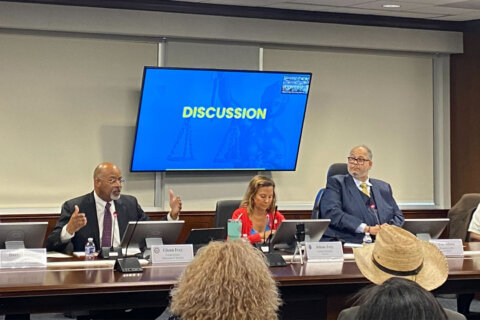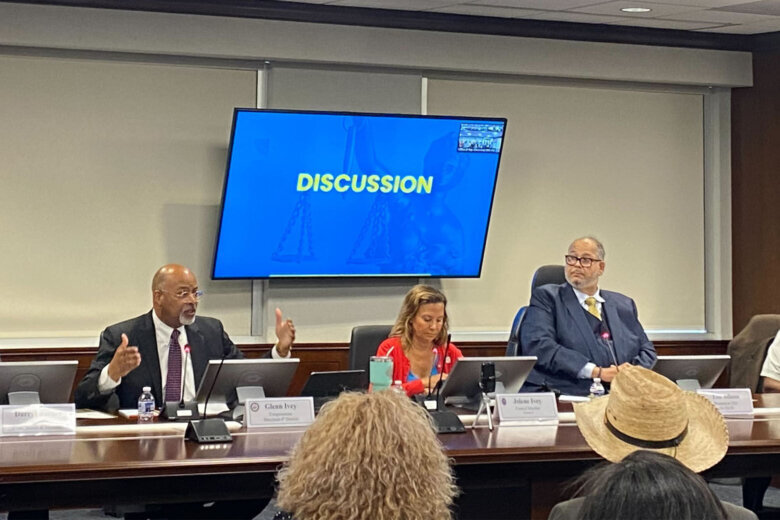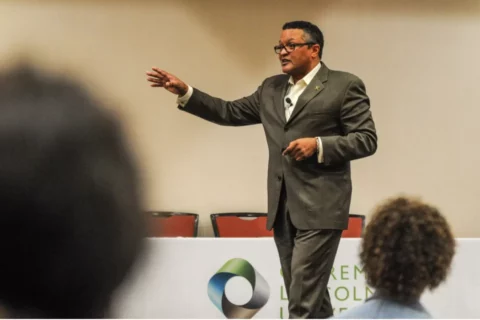
A recent Supreme Court ruling on affirmative action prevents colleges and universities from using race as a factor when it comes to admissions. But there’s concern that the ruling will reverberate beyond college campuses — including to the government contracting process.
It’s what brought several business owners together to the Wayne Curry Building in Largo, Maryland, for a roundtable discussion put together by Rep. Glenn Ivey and Prince George’s County Council member Jolene Ivey.
“There’s already been a ripple effect that’s impacted federal government procurement,” said the congressman. “A lot of preferential treatment programs that provide sheltered markets so minority businesses can compete, those are all at risk now.”
The discussion was a chance for business owners to network together, but to also make them aware that decades-old programs set up to help them compete may not have a long life span.
“Right now is the time for us to take immediate action,” said Sylvia Johnson, the president and CEO of JI Solutions. She said current programs that provide a boost to minority-owned businesses level the playing field so they can compete.
“The government is aware that there is a bias. That’s why these programs were created,” she said. “So what we’re saying is: Do not abolish these programs. Help us to continue to strengthen these programs.”
On the panel discussing the current state of contracting was Bowie Mayor Tim Adams, whose day job is serving as president and CEO of SA-Tech, a government contracting firm. He said minority-owned businesses often struggle to get the same access to capital, never mind the doubts and biases that can often cloud the decision-making process.
“Those were some of the things that were held against us historically,” Adams said. “But the reality is it still exists a lot for a lot of businesses.”
While he’s broken through over the years, Adams said lots of other businesses haven’t been so lucky. He said that’s to the detriment to the nation as a whole.
“These aren’t just that they benefit minority companies,” Adams said. “When you start building these companies, you’re talking about increased competition. Increased competition drives innovation. It cuts costs. This is about creating an opportunity that creates new jobs. This isn’t about giving anybody something that’s just for them. It’s about creating an opportunity to help our nation as a whole.”
Johnson noted that the American small business is “the cornerstone of the American economy.”
“We absolutely feel that we are threatened,” Johnson said. “And what do you do when you’re threatened? You fight or you flee. I’m a small business owner. I’ve been doing this for over 30 years. I’m fighting. I’m not fleeing.”









